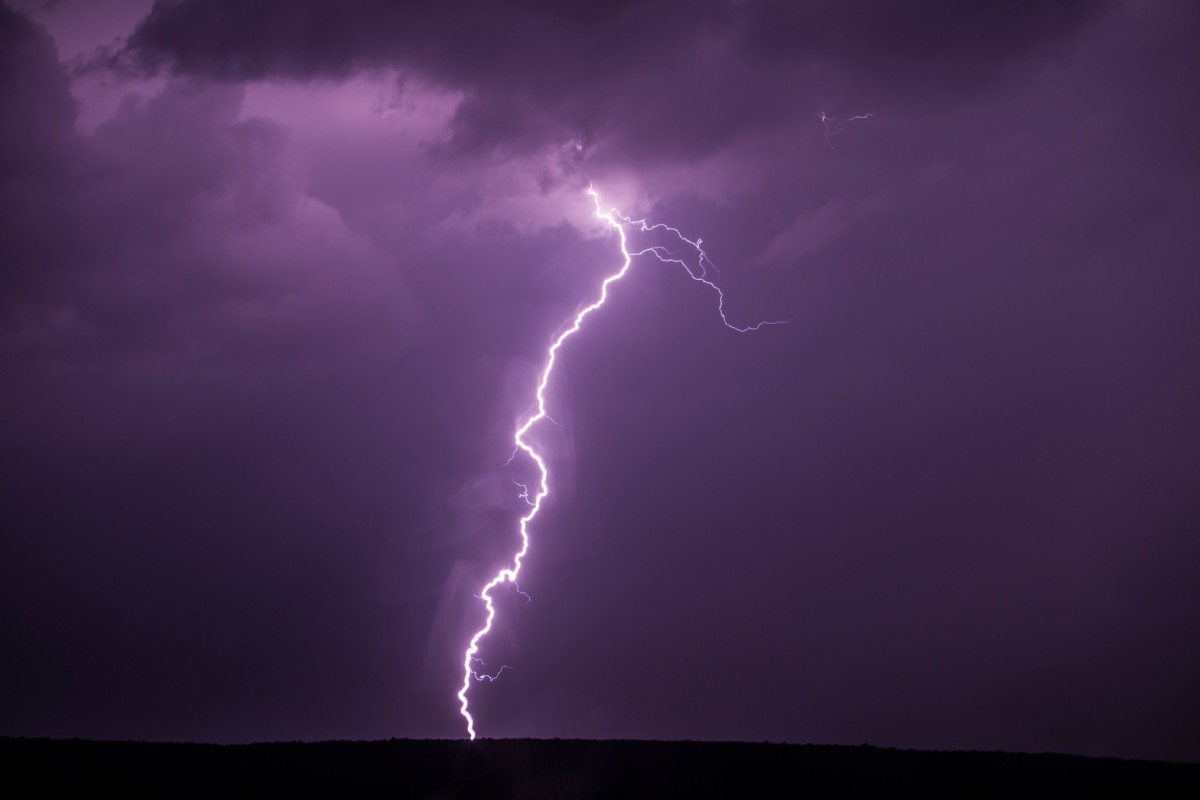If You Smell This, Get Out of the Pool Immediately, Experts Warn

The weather is getting toastier by the minute throughout the U.S., meaning there’s no time like the present to take a dip in order to beat the heat. However, experts say there’s a significant summer danger that means you should give up your swim immediately—and what’s more, before you can so much as see it, your nose may pick up on the problem. If you want to avoid putting yourself in harm’s way this summer, read on to discover the one scent that means you should hop out of the pool immediately.
RELATED: If You See This in a Hot Tub, Don’t Go In, Experts Say.
Get out of a pool immediately if you smell ozone.

There’s one particular smell that can tip you off to a serious danger while you’re swimming: ozone. According to the Illinois Extension at the University of Illinois Urbana-Champaign, that ozone smell in the air is likely the result of a nearby storm; ozone gas can form when lightning separates the oxygen atoms within gaseous oxygen and they form a new gas composed of three oxygen atoms.
When the wind carries the resulting ozone to the area in which you’re swimming, it can alert you to an approaching storm—and potential lightning hazards.
For the latest summer safety news delivered straight to your inbox, sign up for our daily newsletter!
A significant proportion of lightning deaths are related to swimming.

It’s not just the pool you should leave if you smell ozone in the air—putting significant distance between yourself and any body of water is a smart plan if there may be an impending storm.
Approximately 90 people were killed by lightning between 2006 and 2019 while engaged in water-related activities, according to the National Lightning Safety Council. Among those individuals, eight percent were swimming at the time they were struck by lightning. Surprisingly enough, even indoor pools may present a serious risk when there’s a storm approaching—according to the Centers for Disease Control and Prevention (CDC), approximately 32 percent of lightning strike injuries occur indoors.
Ozone has a very particular scent.

The good news? Ozone is easily detected by the human nose, even at relatively low concentrations. According to Scientific American, the smell is both “sweet” and “pungent,” while BreatheBetterAir.org calls the scent “reminiscent of bleach or chlorine.”
The bad news? You may mistake the smell of chloramines—the combination of chlorine and ammonia that can form when pool chemicals and biological waste mix—for the scent of ozone. However, even if you can’t smell ozone, if you know a storm is approaching or the sky is getting dark, it’s always safest to get out of the pool.
At high levels, ozone can be dangerous on its own.

While the greatest danger associated with smelling a bit of ozone in the air before a storm is the potential to be struck by lightning, higher concentrations of ozone can cause serious damage.
According to the Environmental Protection Agency (EPA), in higher concentrations, ozone can cause inflammation in your respiratory tract, make it more difficult to breathe, and can exacerbate existing lung conditions like asthma and emphysema. To avoid ozone hazards in the summer, the agency recommends monitoring local air quality reports and staying indoors as much as possible when ozone levels are particularly high.
RELATED: Never Go in a Lake If You See This One Thing, Local Officials Warn.